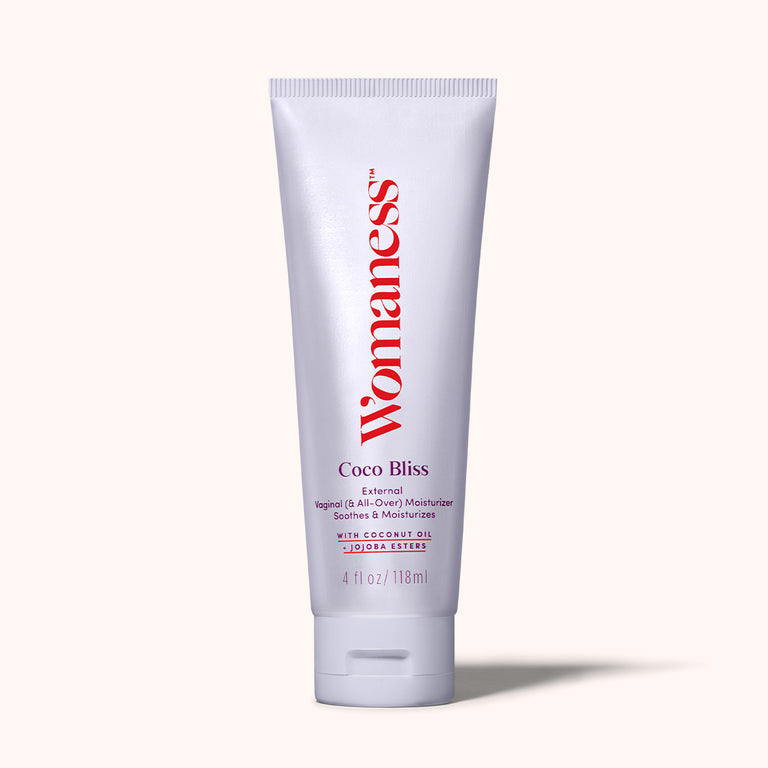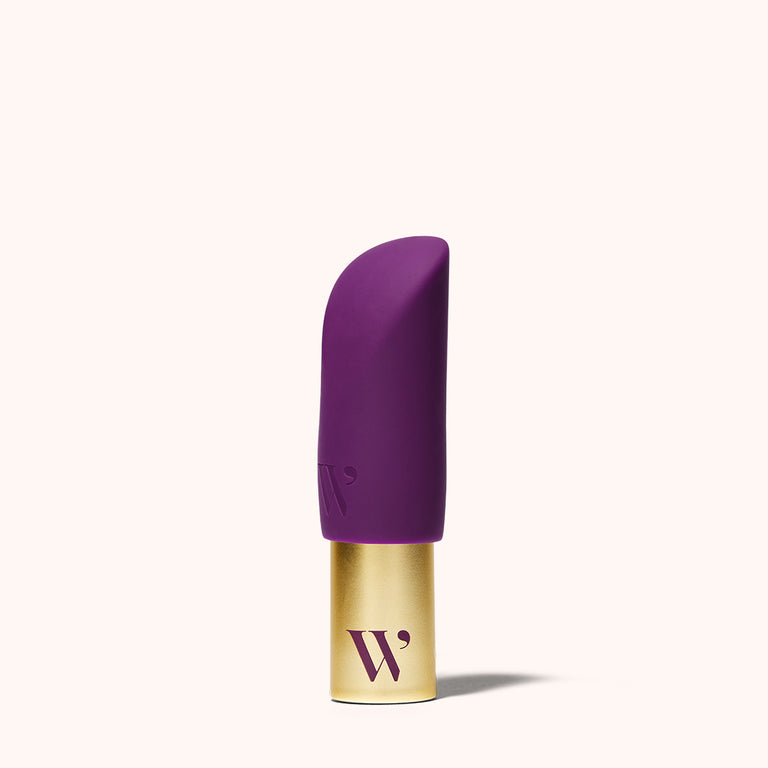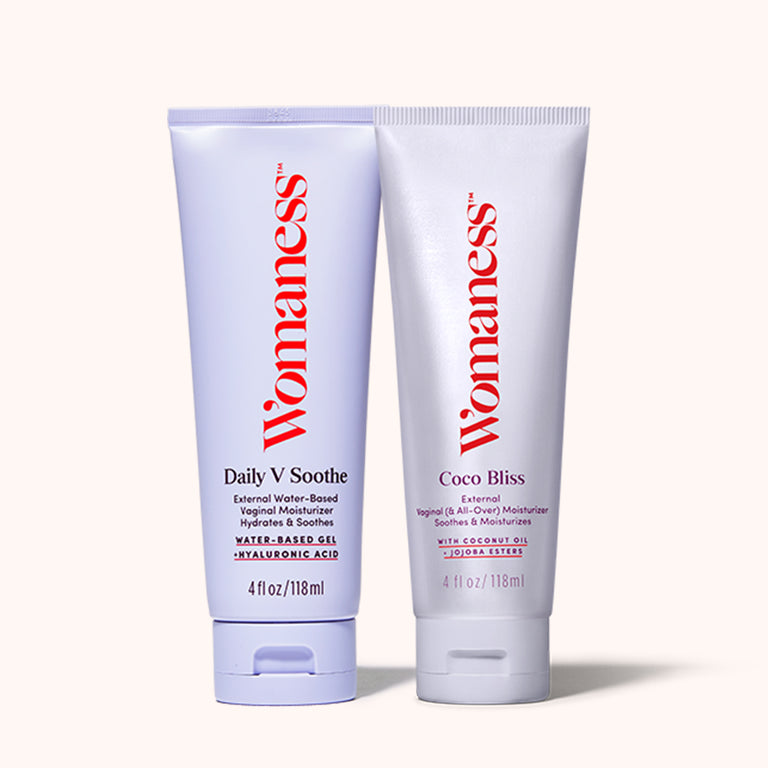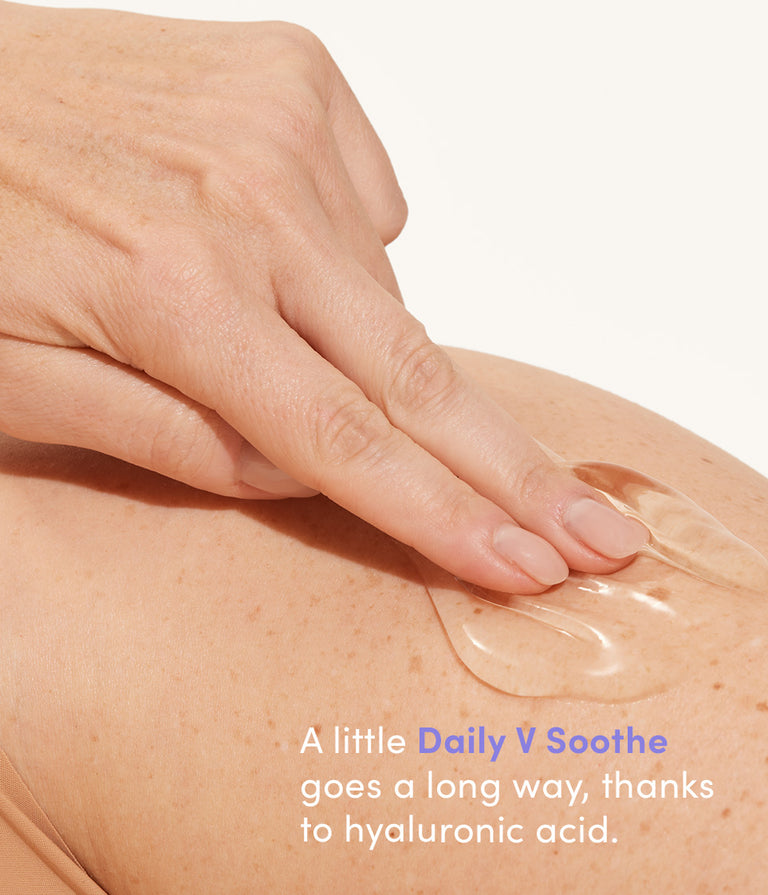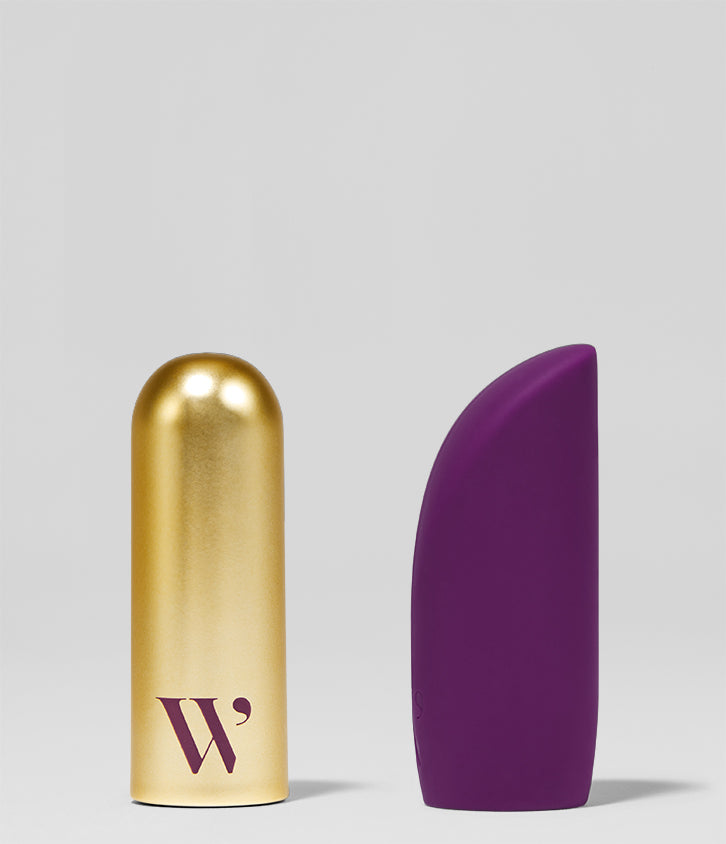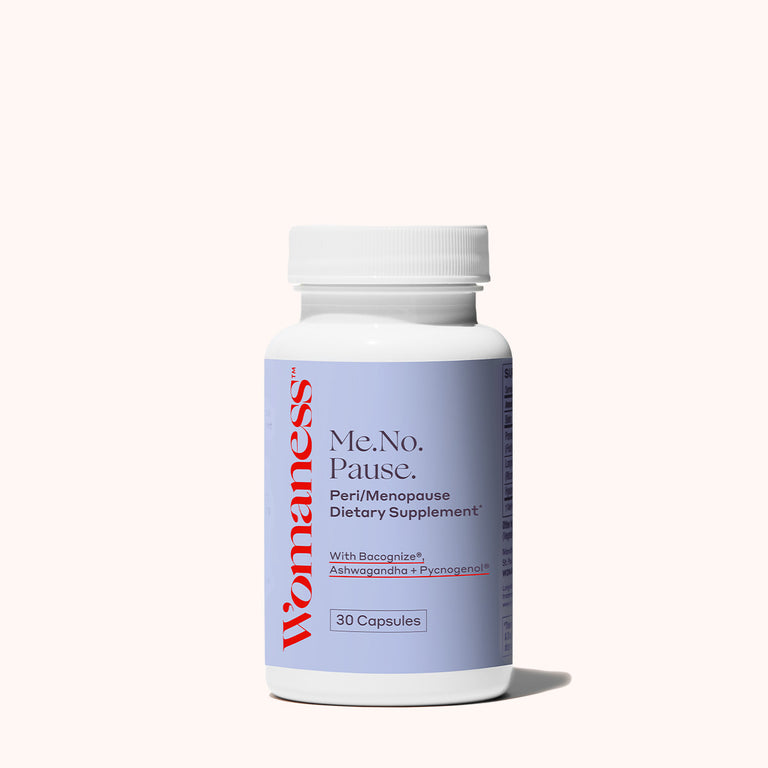By Dr. Emily Morse 3-Minute Read

Doctor of Human Sexuality and Womaness Expert Emily Morse is on a mission to liberate the conversation about sex and pleasure. She’s a bestselling author, pioneering MasterClass Instructor, SiriusXM radio host and exec producer, and host of iTunes’ #1 Sexuality podcast Sex With Emily. Order her book Smart Sex here and follow her on Instagram here.
Let’s face it. For decades, vulva owners have been in the dark about menopause and sex. And one of the main reasons is because we’ve all had a giant misunderstanding around hormone therapy.
But the good news is, we’re in the middle of a menopause rebrand. Because now, we’ve got actual, helpful treatment options, from care providers who take pleasure seriously, understand what menopause is, and how to effectively treat it via hormones.
WHAT IS MENOPAUSE?
In strictly medical terms, menopause officially occurs 12 months after your last menstruation. Your hormone levels no longer support fertilization. The onset of menopause is typically in your early 50s, and you might experience the following symptoms:
- hot flashes
- thinning of the vaginal walls
- vaginal dryness and pain during intercourse
- weight changes, especially to your middle: your body is trying to hold onto the estrogen that abdominal fat produces
- bone loss
- brain fog and other mood changes
Leading up to menopause, your hormone levels are changing and your estrogen levels are dropping. This is called “perimenopause.”
WHAT IS PERIMENOPAUSE?
During perimenopause, your body is releasing its final eggs. You can still get pregnant during this time though, which is a helpful thing to keep in mind. It usually starts in your 40s, and you might experience the following symptoms:
- irregular periods (sometimes you won’t get a period for months, sometimes you get a ton of bleeding)
- sleep disruption
- mood changes
- sex drive changes
I know what you’re thinking: fun! But not only are these symptoms manageable, there’s a fast-growing sex and pleasure market right now for vulva owners experiencing this.
"Not only are these symptoms manageable, there’s a fast-growing sex and pleasure market right now for vulva owners experiencing this."
HOW MANY VULVA OWNERS EXPERIENCE MENOPAUSE SYMPTOMS?
Eighty-five percent. All vulva owners will experience menopause, but 85% will go through the symptoms listed above.
WHAT CAN I DO TO MANAGE MY SYMPTOMS?
A recent national poll found that 35 percent of menopausal women reported they had experienced four or more symptoms, but only 44 percent said they had discussed their symptoms with a doctor, writes Susan Dominus in a New York Times article.
What does this tell me? There are so many vulva owners out there who are afraid to ask their OB/GYN: “Look, can you help me with my vagina?”
And it’s no wonder. Medical school offers precious little training in perimenopausal and menopausal care, which is why many OB/GYN’s minimize or dismiss the topic entirely. Also, earlier research studies linked hormone therapy to an increased risk of various cancers, a stigma that’s followed HRT for decades. But today, the treatments and the delivery methods have improved, showing that hormone therapy remains the most effective treatment for hot flashes, changes to your genitals, and has even been shown to prevent bone loss and fracture. Even the North American Menopause Society now states the benefits of hormone therapy, which significantly outweigh the risks for women under 60.
WHY IS ESTROGEN SO IMPORTANT?
Estrogen is the hormone that declines most during perimenopause and menopause. And when it does, those pesky symptoms start to arise: hot flashes, mental fog, thinning of the vaginal walls, even a harder time getting sexually aroused. Fortunately for most, hormone therapy is an effective and safe option to treat all that.
"To keep your sex drive high, prioritize your solo sex."
WHAT ARE OTHER TREATMENT OPTIONS FOR THESE SYMPTOMS?
Here are other methods you can try.
Vaginal Dryness
Get thee a lube! [See Emily's recommendations here.]
Sex Drive
To keep your sex drive high, prioritize your solo sex. Doing so will keep blood circulating to your genitals, for healthy vaginal tissues. But it will also build your sexual intelligence, so you can continue learning what feels good in your body. Womaness makes an excellent, affordable bullet toy called Gold Vibes: get it, use it, thank me later.
Mood Changes
Since the hormone changes that happen during perimenopause and menopause can bump up anxiety and depression, now is the time to adopt a deep breathing practice. It’s a free, everyday tool you can use to keep intrusive thoughts at bay, especially before and during sex itself.
When we breathe deeply, we stimulate the vagus nerve: a critical part of your nervous system that I talk more about in my forthcoming book, Smart Sex. It’s in charge of turning off your fight-or-flight system, and getting you into a state of “rest and digest.” That’s the state of mind we need to be in, for our best sex.
You can also take a supplement designed to support your mental health, like Me.No.Pause. from Womaness. I enjoy this one in particular, since it uses research-backed ingredients that support focus, sex drive, and healthy blood circulation.
I’d love to continue talking to all of you about perimenopause, menopause, and sex. Let’s keep the conversation going on Instagram, at @sexwithemily.
Highlights from an original article on sexwithemily.com. Re-published with permission.
More For You
Ask a Sex Therapist: "What Type of Lubricant Should I Use?"
Ask a Sex Therapist: "Can a Vibrator REALLY Help My Sex Drive in Menopause?"
What’s Happening Here? Vaginal Dryness

